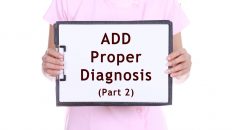By Marc Braman, MD, MPH
MB (Marc Braman, MD, MPH):
One of the largest and most fearsome plagues of modern life is Alzheimer’s disease or other forms of dementia. That’s what makes this new study so exciting. For years we’ve thought that there is not much that we can do. Pharmaceutical companies are doing all kinds of things to try to come up with a pill that will prevent this, postpone it, make it better, whatever, all to no significant avail.
MB:
Recent study published in 2015 in The Lancet, leading British medical journal, for two years, with over 1,200 people showed they could make a major difference, a combination of lifestyle factors, including nutrition, exercise, brain training and vascular risk monitoring, things that would pertain to heart disease or stroke risk like cholesterol and so forth. Now, this was in a population of at-risk elderly people, meaning they were older and they had significant risk factors that would predispose them to getting Alzheimer’s or other forms of dementia. Cool findings, they were able to show that they could significantly improve brain function and multiple types of brain activity that were studied. This is the largest study to date. Other studies have showed similar things, so there is a strong pattern, but none of them had been this long and with this many people.
MB:
So they were able to show that with each of the things they measured, the different brain functions, they were able to see improvements compared to the control group of 25% to 150% better. Now, that’s pretty impressive. However, when you actually look at the control group, they also improved. Now, they should have gotten worse. Normal aging, your brain should be getting less and less functional, but they didn’t. So what’s going on here?
MB:
Now, this is what gets fun as someone who understands medical research. They really didn’t speak to this much except that, “Well, maybe the people got better at taking the test. Maybe there’s the placebo effect.” But when you look at what the control group was or what they did with the control group, it’s fascinating. Now, they considered it unethical to do nothing for the control group.
MB:
So what did they do? They gave them some of what the treatment group got. They gave them regular health advice. They met just like the treatment group at the start, at six months, at 12 months and 24 months. They saw the study nurse during this time. They had measurements of blood pressure, weight, body mass index, waist and hip circumference, all this kind of stuff. They met the study physician at the start and at the two-year point for detailed medical history and physical examination. They all got both verbal and written information and advice on nutrition, physical activity, cognitive and social activities, how to manage vascular risk factors and prevent disability. They also, both groups, got blood samples four times during the study. Start, six months, 12 months, 24 months. And laboratory results were mailed to the participants together with written information about what they meant and what they could do about it, and advised to contact their healthcare provider if needed. So in essence, what we find is that it’s basically a dose study. The control group was actually somewhat of a treatment group which is why they saw improvement.
MB:
The other thing that’s really interesting is that even in the treatment group what they did with them was not all that dramatic. They basically worked with them a little more intensively to do standard recommendations, a nutritional program which is better than the average but still isn’t necessarily optimal. Even so, significant and definite improvement. They’re planning to continue the study out to seven years and will probably continue to see very good results especially compared to people that do nothing. What gets exciting about this is that if we can postpone Alzheimer’s disease by five years, which will take us some years to do, that its overall prevalence, meaning how many people in the community have it to a significant degree, can drop as much as 50%. Or, there’s really not a limit of 50%. It could go more, but we will end up dying of something else, meaning we will be enjoying life and be fully engaged much more often as a population into our golden years. So instead of our brain going down the drain, we can send Alzheimer’s disease down the drain with a solid lifestyle medicine approach that treats the cause.
A 2 year multidomain intervention of diet, exercise, cognitive training, and vascular risk monitoring versus control to prevent cognitive decline in at-risk elderly people (FINGER): a randomised controlled trial. Ngandu T, Lehtisalo J, Solomon A, Levälahti E, Ahtiluoto S, Antikainen R, Bäckman L, Hänninen T, Jula A, Laatikainen T, Lindström J, Mangialasche F, Paajanen T, Pajala S, Peltonen M, Rauramaa R, Stigsdotter-Neely A, Strandberg T, Tuomilehto J, Soininen H, Kivipelto M. Lancet. 2015 Jun 6;385(9984):2255-63. doi: 10.1016/S0140-6736(15)60461-5. Epub 2015 Mar 12.





